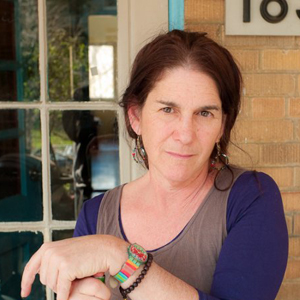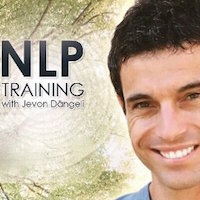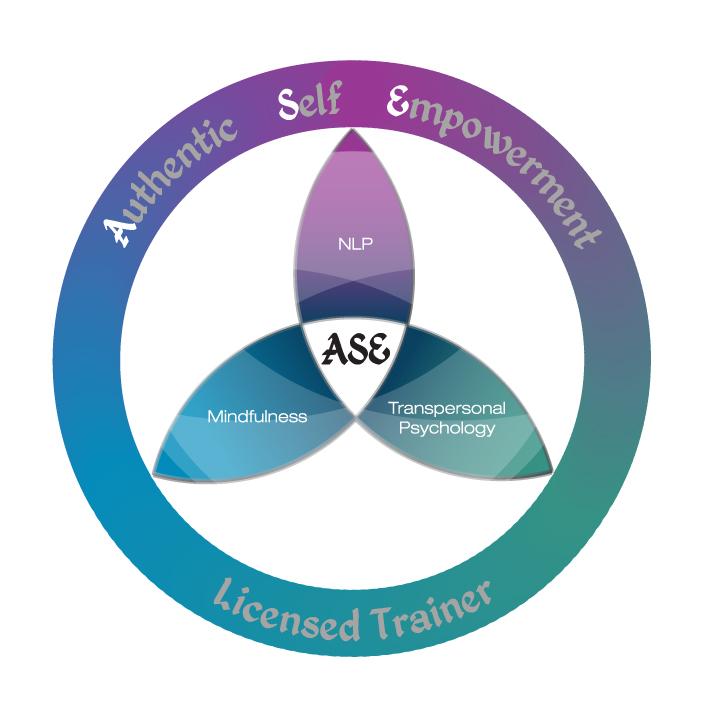Transpersonal Coaching & Therapy Network Forum
Use of this forum is exclusively for TCTN members.
.
For information about TCTN membership (free) visit the TCTN page.
.
Register or login below to add a new forum topic or respond to an existing topic.
Notifications
Clear all
TCTN Forum
17
Posts
11
Users
1
Likes
1,783
Views
Topic starter
06/11/2018 3:54 pm
My first topic that I have been thinking about for a long time is anger. I want to explore what this emotion means, how it manifests and ways to deal with it, learn from it and even remove it. However I also do not want to shy away from times when it is appropriate and what the different responses in those situations are and how they maybe be different to an inappropriate emotional state of anger.
What is the root of the word - Anger
Middle English: from Old Norse angr ‘grief’, angra ‘vex’. The original use was in the Old Norse senses; current senses date from late Middle English.
There seem to be many ways of dealing with it - as a signal to change or respond to something that is happening in ones environment that has made one behave this way. Shadow integration in NLP seems to deal with this to a degree by working on identifying the symptoms, reframing and naming the outburst in an attempt to change it. Buddhism talks about the need to smother it and its impact for the betterment; at least that is my understanding. Another approach I have used is the setting up of a chain of NLP anchors to move from an angry state to a more reflective and then resourceful productive state. I look forward to any ideas on good approaches to dealing with anger.
https://en.oxforddictionaries.com/definition/anger
https://healthypsych.com/psychology-tools-what-is-anger-a-secondary-emotion/
This topic was modified 5 years ago by tariq.juneja
26/12/2018 6:04 pm
I've just read some work by Hans TenDam and he says the following on anger and expressing emotions:
"Therapy is not just processing after-the-fact, but also healing and strengthening courage and realism in general. We suppress emotions and delay processing them because we are reluctant or we are hardly aware of them. Or because we carry repressed experiences and emotions of an even earlier time with us."
In regression therapy you want the client to express the emotion, such as anger so that it releases its emotional charge. First find out the reason for the anger existing, and work through the catalyst or origin of it and then you can experience the anger. This goes for many emotions too, such as grief, sadness or guilt.
"Particular forms of anger we can hardly express if we want to remain civilised. But the more we repress our anger, the harder it is to express it eventually without becoming childish or brutish. Civilised anger begins by expressing it explicitly and clearly and by quiet, unyielding presence."
In his book he has a small example of this dialog:
Client: "I feel a terrible fear."
Therapist: "Very good. Feel the fear. As deeply and as fully as you can. Go as calmly as possible into the fear, an ever deepening fear. Feel the fear in your entire body. Immerse yourself in this fear. Stay with your fear. Stay with it."
By following this process, you might remove the emotional charge of the fear, or find the real emotion or trigger that causes it. This is similar to when a client feels a pain or uncomfortable sensation in the body, and you ask them to expand the somatic feeling and focus on it, so it fills their entire body, and then asking them to remember the previous time they felt that sensation, or the first time they felt that sensation. We go back and try find the meaning and heal it.
Topic starter
17/01/2019 10:16 am
Thanks - I think this is a wonderful example of a way to release that anger - even when we examine our own anger - the triggers and reactions we can learn so much about our own personal motivations/feelings/issues that cause these feelings of anger to rise to the surface.
Topic starter
17/01/2019 10:36 am
Angry emotions include many different reactions ranging from mildly irritated, angry, resentful, vexed or even enraged. Another way to view this is what is the message that the emotion of anger is trying to impart that is useful for a human being? Perhaps it is that an important rule or standard that you hold for your life has been violated by someone or something else, or maybe even yourself?
So what is the solution????
1) Perhaps greater patience and calm, humour even as you re-assess the situation and deal with the anger and frustration
2) It may be that you come upon the realization that you have misinterpreted the situation completely, that the anger about the person breaking your rules may be due to them not realising just how important this rule is to you (despite you believing they should.)
3) Realise that even if they did break one of your standards, your rules are not necessarily the "right" rules as strongly as you feel them to be
4) Perhaps ask yourself the question "In the long run, is it true that this person really cares about me? Interrupt the anger by asking yourself "What can I learn from this? How can I communicate the importance of these standards I hold for myself to this person in a way that causes them to want to help me, and not violate my standards again in the future?"
You can change your perception - maybe I didn't effectively communicate my needs
You can change your procedure - maybe I need to communicate more effectively what my needs are, for example "please keep this private"
17/01/2019 4:10 pm
Interesting thoughts Tariq, and I agree with your post above. Anger can take a physical toll as well as an emotional toll on a person, and if this anger keep occurring it can impact family life, relationships, physical and mental health.
It's often about our perception of what has happened, or how someone else has behaved. And to take that step back and ask ourselves - did this person really mean to make us angry, or are we projecting something from our psychology onto their behaviour? Is their behaviour a reflection of them or of us? Of reality, or of a story that only we know about, playing inside our heads? Are we reacting to what is in front of us, or releasing a pent up anger that has built up over many years - leaving the person we blow up at completely baffled?
Myself, I used to be much angrier - fuelled (I think) by a fear of not being taken seriously at work, a lack of confidence. A phrase that someone once said to me has stayed with me ever since, and I use it often when I feel myself getting angry, or starting an argument. It's "Is this the hill I want to die on?" and very rarely is my internal answer to this "yes"! Generally whatever is going on is not the hill I want to die on, and so I just let it go and try and focus in a more positive way.
As I said, interesting debate!
Lisa
19/01/2019 10:47 am
A few things occur to me - one being - "what we resist, persists" 🙂 With anger.. I do find that shadow integration, or welcoming the emotion into us is crucial. Working with it through a meditation practice such as a loving-kindness practice, in which we observe the emotion and thank it for being there is also important. Asking the emotion why it is present can bring insight.
Another thing that came to me, after reading your post Lisa- is the steps of Nonviolent Communication 1) Observe what is going on without judgement (discern what are observations and what are facts 2) Recognise the feeling, label it. 3) Ask- are my needs being met? (anger may arise from one's needs not being met in the current situation. Be aware of what the needs are 4) Make a request. I also wrote about this recently if anyone is interested in reading it: https://www.julesdevitto.com/blog/nonviolent-communication
Jules
23/01/2019 11:02 am
In his book ""Heaven and Hell - The psychology of Emotions", Dr Burton describes positive and negative aspect of anger.
According to him, if judiciously exercised, anger can enable a person to signal high social status, compete for rank and position, straighten bargaining positions, ensure that contracts and promises are fulfilled, and even inspire desirable feelings such as respect and sympathy. A person who is able to express or exercise right anger is likely to feel better about himself, more in control, more optimistic, and more prone to the sort of risk-taking that maximizes the outcome.
In contrast, uncontrolled anger can lead to loss of perspective and judgement, impulsive and irrational behaviour, and loss of face, sympathy, and social status.
In summary, justified, controlled, strategic and potentially adaptive anger ought to be distinguished and contrasted from another anger that is inappropriate, unjustified, unprocessed, irrational, undifferentiated and uncontrolled. The function of anger is to protect the ego.
Topic starter
23/01/2019 10:58 pm
Thanks Vladimir, this distinction on the kinds of anger that exists makes sense to me.
Topic starter
23/01/2019 10:58 pm
Thanks Vladimir, this distinction on the kinds of anger that exists makes sense to me.
26/01/2019 9:58 am
So true Vladimir that anger is always viewed negatively. Right from childhood most of us are programmed to lock anger up and often grow up feeling terrible or upset with ourselves when we do lose our cool. It is only when we give ourselves permission to accept our emotion in a positive or empowering way and fully acknowledge it's presence that we can really truly move on. As a coach I would work in healing this emotion by practicing kindness with self and others and working on love, compassion and forgiveness.
I have a couple I am working with at the moment and finding this approach positive.
26/01/2019 1:13 pm
I'm not so sure that distinguishing between "good anger" and "bad anger" is useful.
Maybe it's semantics, but to me the word or label "anger" carries a negative tone. It also refers to a secondary emotion after the point when our minds have already done some processing, whether conciousnessly or otherwise, of a preceding primary raw feeling. That processing is influenced by any number of conditioned responses. The primary feeling is more intuitive, reflexive, and neutral. It is what it is before our conditioning gets hold of it,before it gets a label. And we know how vital and powerful primary emotion is.
When anger is expressed, it is always unresourceful and damaging to some degree or another. Yes, it may afford us social power, as Vladimir points out, but is social dominance or status necessarily a resourceful, ethical or humanistic outcome to strive for?
Where we do agree is that often, perhaps always if we know how to, that primary feeling, charged with raw energy, can energize productive change or set a powerful intent or drive transformation. But then we need to trace it back to before it became the thing we call anger, re-channel the sourceful energy.
As transpersonal and ASE coaches, we have the skill set to do that.
11/02/2019 9:10 pm
Hi there,
I agree with Vladimir's point that anger can have a very positive side.
Anger is a strong energy that, controlled in the right way can be very powerful to provoke a necessary change.
It's like an explosion, if used under controlled conditions can be very useful and beneficial but if you let anger control you it can be very destructive. There is a point here on either control and use the anger for you own benefit or be controlled by it.
Anger, like other emotions is giving you a message, usually the message is that either you (if you are angry at yourself) or the other(s) have violated one of your rules. We all have our own internal rules which are different from other's, if something/somebody has triggered your anger your rule has probably been violated.
Imagine this situation:
- Somebody tells you a white lie about something which is not really important
- You get angry as you know that person is telling you a lie
You can explore your own internal rule: honesty, nobody should tell any lie even small under any circumstance
Now that you now that, you can either:
- Modify your rule to avoid becoming angry at any small lie that anyone may tell
- Use that anger energy in a controlled way and turn it into assertiveness by expressing your needs for honesty to the other person in a firm way.
Assertiveness is a level of anger used to set boundaries and demand respect that is very necessary to contribute to healthy personal relationships.
-
-
-
-
09/04/2019 10:02 am
I am interested in what aspect of self jumps up in anger and what it might be trying to protect or achieve in its anger. We often have a protector aspect that gets triggered when a more vulnerable aspect feels "under threat". Something triggers the anger response. What is under threat? What is at risk? The little bit I understand about the psychophonetic compassion triangle is that it identifies 3 essential aspects of self that show up in triggered situations: the vulnerable or diminished self; the critical or judgemental self; and the compassionate Self. Often the judgemental or critical aspect is trying to protect the more vulnerable aspect and might do this by projecting anger or judgement outwards or inwards wherever the perceived threat is. In identifying what actually nee, we can bring compassion into the situation, and find more skillful ways to protect that which feels under threat. Hearing the voices of the triggered angry self and the vulnerable, diminished self it is possibly trying to protect, and bringing wisdom and compassion to this dynamic (as we do with Coach Quantum) we can potentially get to the cause of the anger and find more resourceful routes to protecting that inner vulnerable (victim) self. I am not suggesting this is true in all cases, and would be interested to hear from others if you have experienced that under anger (which is an extreme expression of a number of other emotions such as annoyance and irritability, and even judgement), there is a more vulnerable aspect that the angry emotion is rather clumsily trying to protect?
tariq.juneja reacted
11/04/2019 5:27 pm
Thanks Renee, this is very interesting. Anger, like any strong emotion, as an addiction - and in some cultures (I mean organisational cultures) if you have power, it becomes normalised and accepted to express anger. I think (interested in other opinions here), that at the heart of all "toxic" behaviours lies powerless (no matter your rank). I see this in the organisations I work with.
12/04/2019 2:13 pm
Hi Tracy and Renee,
I think anger is indeed the base defensive response and our society has never taught us to explore what it is that we are sub-consciously attempting to defend when we express anger. It is only very recently that the neuroscience around thought-emotion-behaviour linkage is becoming more widely understood and available to the broader public (not just academics), so I am optimistic that we can more easily teach people to use anger as a portal for re-establishing Self-connection and exploring the triggers of anger and the underlying beliefs that promt us into this defensive response. It is also deeply entrenched in ego ideaology of right and wrong, so once we get a sense of each of us living by our perception of the world, then we are less inclined to be assessing/judging the world and our experiences as right/wrong. We have greater compassion for those that we observe to be acting in ways we feel are not beneficial to anyone and can laugh at ourselves when we revert to such a rigid mindset.
Page 1 / 2
Next
My first topic that I have been thinking about for a long time is anger. I want to explore what this emotion means, how it manifests and ways to deal with it, learn from it and even remove it. However I also do not want to shy away from times when it is appropriate and what the different responses in those situations are and how they maybe be different to an inappropriate emotional state of anger.
What is the root of the word - Anger
Middle English: from Old Norse angr ‘grief’, angra ‘vex’. The original use was in the Old Norse senses; current senses date from late Middle English.
There seem to be many ways of dealing with it - as a signal to change or respond to something that is happening in ones environment that has made one behave this way. Shadow integration in NLP seems to deal with this to a degree by working on identifying the symptoms, reframing and naming the outburst in an attempt to change it. Buddhism talks about the need to smother it and its impact for the betterment; at least that is my understanding. Another approach I have used is the setting up of a chain of NLP anchors to move from an angry state to a more reflective and then resourceful productive state. I look forward to any ideas on good approaches to dealing with anger.
https://en.oxforddictionaries.com/definition/anger
https://healthypsych.com/psychology-tools-what-is-anger-a-secondary-emotion/
I've just read some work by Hans TenDam and he says the following on anger and expressing emotions:
"Therapy is not just processing after-the-fact, but also healing and strengthening courage and realism in general. We suppress emotions and delay processing them because we are reluctant or we are hardly aware of them. Or because we carry repressed experiences and emotions of an even earlier time with us."
In regression therapy you want the client to express the emotion, such as anger so that it releases its emotional charge. First find out the reason for the anger existing, and work through the catalyst or origin of it and then you can experience the anger. This goes for many emotions too, such as grief, sadness or guilt.
"Particular forms of anger we can hardly express if we want to remain civilised. But the more we repress our anger, the harder it is to express it eventually without becoming childish or brutish. Civilised anger begins by expressing it explicitly and clearly and by quiet, unyielding presence."
In his book he has a small example of this dialog:
Client: "I feel a terrible fear."
Therapist: "Very good. Feel the fear. As deeply and as fully as you can. Go as calmly as possible into the fear, an ever deepening fear. Feel the fear in your entire body. Immerse yourself in this fear. Stay with your fear. Stay with it."
By following this process, you might remove the emotional charge of the fear, or find the real emotion or trigger that causes it. This is similar to when a client feels a pain or uncomfortable sensation in the body, and you ask them to expand the somatic feeling and focus on it, so it fills their entire body, and then asking them to remember the previous time they felt that sensation, or the first time they felt that sensation. We go back and try find the meaning and heal it.
Thanks - I think this is a wonderful example of a way to release that anger - even when we examine our own anger - the triggers and reactions we can learn so much about our own personal motivations/feelings/issues that cause these feelings of anger to rise to the surface.
Angry emotions include many different reactions ranging from mildly irritated, angry, resentful, vexed or even enraged. Another way to view this is what is the message that the emotion of anger is trying to impart that is useful for a human being? Perhaps it is that an important rule or standard that you hold for your life has been violated by someone or something else, or maybe even yourself?
So what is the solution????
1) Perhaps greater patience and calm, humour even as you re-assess the situation and deal with the anger and frustration
2) It may be that you come upon the realization that you have misinterpreted the situation completely, that the anger about the person breaking your rules may be due to them not realising just how important this rule is to you (despite you believing they should.)
3) Realise that even if they did break one of your standards, your rules are not necessarily the "right" rules as strongly as you feel them to be
4) Perhaps ask yourself the question "In the long run, is it true that this person really cares about me? Interrupt the anger by asking yourself "What can I learn from this? How can I communicate the importance of these standards I hold for myself to this person in a way that causes them to want to help me, and not violate my standards again in the future?"
You can change your perception - maybe I didn't effectively communicate my needs
You can change your procedure - maybe I need to communicate more effectively what my needs are, for example "please keep this private"
Interesting thoughts Tariq, and I agree with your post above. Anger can take a physical toll as well as an emotional toll on a person, and if this anger keep occurring it can impact family life, relationships, physical and mental health.
It's often about our perception of what has happened, or how someone else has behaved. And to take that step back and ask ourselves - did this person really mean to make us angry, or are we projecting something from our psychology onto their behaviour? Is their behaviour a reflection of them or of us? Of reality, or of a story that only we know about, playing inside our heads? Are we reacting to what is in front of us, or releasing a pent up anger that has built up over many years - leaving the person we blow up at completely baffled?
Myself, I used to be much angrier - fuelled (I think) by a fear of not being taken seriously at work, a lack of confidence. A phrase that someone once said to me has stayed with me ever since, and I use it often when I feel myself getting angry, or starting an argument. It's "Is this the hill I want to die on?" and very rarely is my internal answer to this "yes"! Generally whatever is going on is not the hill I want to die on, and so I just let it go and try and focus in a more positive way.
As I said, interesting debate!
Lisa
A few things occur to me - one being - "what we resist, persists" 🙂 With anger.. I do find that shadow integration, or welcoming the emotion into us is crucial. Working with it through a meditation practice such as a loving-kindness practice, in which we observe the emotion and thank it for being there is also important. Asking the emotion why it is present can bring insight.
Another thing that came to me, after reading your post Lisa- is the steps of Nonviolent Communication 1) Observe what is going on without judgement (discern what are observations and what are facts 2) Recognise the feeling, label it. 3) Ask- are my needs being met? (anger may arise from one's needs not being met in the current situation. Be aware of what the needs are 4) Make a request. I also wrote about this recently if anyone is interested in reading it: https://www.julesdevitto.com/blog/nonviolent-communication
Jules
In his book ""Heaven and Hell - The psychology of Emotions", Dr Burton describes positive and negative aspect of anger.
According to him, if judiciously exercised, anger can enable a person to signal high social status, compete for rank and position, straighten bargaining positions, ensure that contracts and promises are fulfilled, and even inspire desirable feelings such as respect and sympathy. A person who is able to express or exercise right anger is likely to feel better about himself, more in control, more optimistic, and more prone to the sort of risk-taking that maximizes the outcome.
In contrast, uncontrolled anger can lead to loss of perspective and judgement, impulsive and irrational behaviour, and loss of face, sympathy, and social status.
In summary, justified, controlled, strategic and potentially adaptive anger ought to be distinguished and contrasted from another anger that is inappropriate, unjustified, unprocessed, irrational, undifferentiated and uncontrolled. The function of anger is to protect the ego.
Thanks Vladimir, this distinction on the kinds of anger that exists makes sense to me.
Thanks Vladimir, this distinction on the kinds of anger that exists makes sense to me.
So true Vladimir that anger is always viewed negatively. Right from childhood most of us are programmed to lock anger up and often grow up feeling terrible or upset with ourselves when we do lose our cool. It is only when we give ourselves permission to accept our emotion in a positive or empowering way and fully acknowledge it's presence that we can really truly move on. As a coach I would work in healing this emotion by practicing kindness with self and others and working on love, compassion and forgiveness.
I have a couple I am working with at the moment and finding this approach positive.
I'm not so sure that distinguishing between "good anger" and "bad anger" is useful.
Maybe it's semantics, but to me the word or label "anger" carries a negative tone. It also refers to a secondary emotion after the point when our minds have already done some processing, whether conciousnessly or otherwise, of a preceding primary raw feeling. That processing is influenced by any number of conditioned responses. The primary feeling is more intuitive, reflexive, and neutral. It is what it is before our conditioning gets hold of it,before it gets a label. And we know how vital and powerful primary emotion is.
When anger is expressed, it is always unresourceful and damaging to some degree or another. Yes, it may afford us social power, as Vladimir points out, but is social dominance or status necessarily a resourceful, ethical or humanistic outcome to strive for?
Where we do agree is that often, perhaps always if we know how to, that primary feeling, charged with raw energy, can energize productive change or set a powerful intent or drive transformation. But then we need to trace it back to before it became the thing we call anger, re-channel the sourceful energy.
As transpersonal and ASE coaches, we have the skill set to do that.
Hi there,
I agree with Vladimir's point that anger can have a very positive side.
Anger is a strong energy that, controlled in the right way can be very powerful to provoke a necessary change.
It's like an explosion, if used under controlled conditions can be very useful and beneficial but if you let anger control you it can be very destructive. There is a point here on either control and use the anger for you own benefit or be controlled by it.
Anger, like other emotions is giving you a message, usually the message is that either you (if you are angry at yourself) or the other(s) have violated one of your rules. We all have our own internal rules which are different from other's, if something/somebody has triggered your anger your rule has probably been violated.
Imagine this situation:
- Somebody tells you a white lie about something which is not really important
- You get angry as you know that person is telling you a lie
You can explore your own internal rule: honesty, nobody should tell any lie even small under any circumstance
Now that you now that, you can either:
- Modify your rule to avoid becoming angry at any small lie that anyone may tell
- Use that anger energy in a controlled way and turn it into assertiveness by expressing your needs for honesty to the other person in a firm way.
Assertiveness is a level of anger used to set boundaries and demand respect that is very necessary to contribute to healthy personal relationships.
I am interested in what aspect of self jumps up in anger and what it might be trying to protect or achieve in its anger. We often have a protector aspect that gets triggered when a more vulnerable aspect feels "under threat". Something triggers the anger response. What is under threat? What is at risk? The little bit I understand about the psychophonetic compassion triangle is that it identifies 3 essential aspects of self that show up in triggered situations: the vulnerable or diminished self; the critical or judgemental self; and the compassionate Self. Often the judgemental or critical aspect is trying to protect the more vulnerable aspect and might do this by projecting anger or judgement outwards or inwards wherever the perceived threat is. In identifying what actually nee, we can bring compassion into the situation, and find more skillful ways to protect that which feels under threat. Hearing the voices of the triggered angry self and the vulnerable, diminished self it is possibly trying to protect, and bringing wisdom and compassion to this dynamic (as we do with Coach Quantum) we can potentially get to the cause of the anger and find more resourceful routes to protecting that inner vulnerable (victim) self. I am not suggesting this is true in all cases, and would be interested to hear from others if you have experienced that under anger (which is an extreme expression of a number of other emotions such as annoyance and irritability, and even judgement), there is a more vulnerable aspect that the angry emotion is rather clumsily trying to protect?
Thanks Renee, this is very interesting. Anger, like any strong emotion, as an addiction - and in some cultures (I mean organisational cultures) if you have power, it becomes normalised and accepted to express anger. I think (interested in other opinions here), that at the heart of all "toxic" behaviours lies powerless (no matter your rank). I see this in the organisations I work with.
Hi Tracy and Renee,
I think anger is indeed the base defensive response and our society has never taught us to explore what it is that we are sub-consciously attempting to defend when we express anger. It is only very recently that the neuroscience around thought-emotion-behaviour linkage is becoming more widely understood and available to the broader public (not just academics), so I am optimistic that we can more easily teach people to use anger as a portal for re-establishing Self-connection and exploring the triggers of anger and the underlying beliefs that promt us into this defensive response. It is also deeply entrenched in ego ideaology of right and wrong, so once we get a sense of each of us living by our perception of the world, then we are less inclined to be assessing/judging the world and our experiences as right/wrong. We have greater compassion for those that we observe to be acting in ways we feel are not beneficial to anyone and can laugh at ourselves when we revert to such a rigid mindset.
THIS FORUM IS FOR:
- Exploring the value of transpersonal perspectives in coaching or therapy.
- Investigating the usefulness of transpersonal interventions in coaching or therapy.
- Engaging in conversations to inspire and motivate a transpersonal vision among coaches and therapists.
- Introducing and discussing transpersonal models and processes that can be applied in coaching or therapy.
- Sharing ideas, knowledge, experiences and resources that are useful to transpersonal coaches or therapists.
FORUM RULES:
- Only TCTN members are permitted to post in the TCTN forum. Membership is free
- Posts that are offensive, biased, unethical, unfair or generally negative will not be accepted.
- Any misconduct on the part of a member will result in that member being removed from TCTN and all their member benefits withdrawn.
- It is acceptable to link to published papers, articles and resources that are directly related to the topic of the forum post, however, promoting of services will not be allowed unless the service is relevant and has been granted the IACTM Stamp of Approval.










